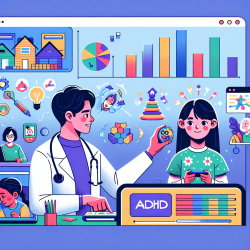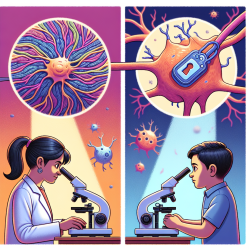Introduction
In the realm of online therapy, particularly for children, the integration of scientific principles can significantly enhance outcomes. The research article "Data-Texts in the Sciences" introduces the Evidence-Explanation (EE) Continuum, a transformative approach that aligns with our mission at TinyEYE to provide data-driven, impactful therapy services. This blog explores how practitioners can leverage the EE Continuum to improve their skills and therapy outcomes.
The Evidence-Explanation Continuum
The EE Continuum is a framework that emphasizes the importance of data transformation in scientific inquiry. It involves four key stages:
- Obtaining observations/measurements to become data.
- Selecting and interpreting data to become evidence.
- Using evidence to ascertain patterns and develop models.
- Utilizing patterns and models to propose and refine explanations.
This approach not only aids in understanding scientific processes but also enhances the design of learning environments, making them more conducive to knowledge building and refining activities.
Application in Online Therapy
For practitioners in online therapy, applying the EE Continuum can lead to more effective therapy sessions. Here’s how:
- Data Collection: Begin by collecting detailed observations during therapy sessions. These observations form the raw data needed for further analysis.
- Data Interpretation: Analyze the collected data to identify patterns or anomalies in a child’s progress. This step transforms data into actionable evidence.
- Model Development: Use the evidence to develop models that predict future outcomes or suggest new intervention strategies.
- Explanation and Refinement: Propose explanations for observed patterns and refine therapy approaches based on these insights.
By following these steps, therapists can create a dynamic, responsive therapy plan tailored to each child's unique needs.
Encouraging Further Research
The EE Continuum encourages practitioners to engage in ongoing research and professional development. By questioning the nature of data and its transformation into evidence, therapists can continuously improve their practice. This iterative process not only benefits the therapist but also significantly enhances the therapeutic outcomes for children.
Conclusion
Implementing the EE Continuum in online therapy offers a structured, evidence-based approach to improving child outcomes. By focusing on data-driven decisions, therapists can provide more effective, personalized therapy sessions. For those interested in delving deeper into the research, I encourage you to read the original research paper: Data-Texts in the Sciences.










